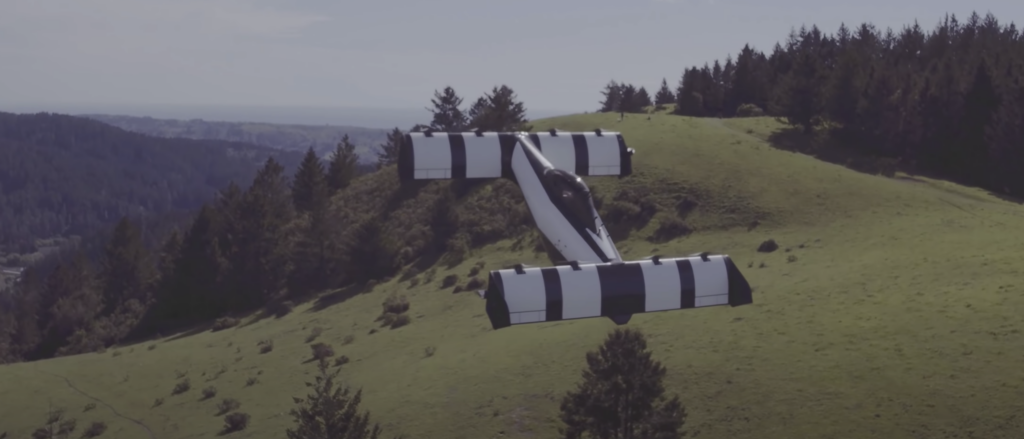The Financial Side of the eVTOL Industry: Insights from the CFO of Opener


Opener, developer of the BlackFly eVTOL aircraft, recently appointed a new CFO—Jon Campagna. (Photos: Opener)
Electric vertical take-off and landing (eVTOL) developer Opener has designed a Part 103 Ultralight Personal Aerial Vehicle. Called the BlackFly, the eVTOL is a fixed tandem-wing aircraft with eight fixed propulsion units and fly-by-wire electrical controls. The BlackFly’s range is 20+ miles and it can cruise at 60 miles per hour.
The company is led by Ken Karklin, who was appointed as Opener’s CEO in 2022. Just last month, Jon Campagna joined the company as Chief Financial Officer (CFO). “Jon is an exceptional financial leader with a proven track record,” Karklin remarked in the announcement. “His wealth of finance and strategy expertise, combined with his deep understanding of the aviation sector, will be immensely valuable to Opener.”

Jon Campagna, CFO
Campagna recently spoke with Avionics International about his previous experience, his goals as the new CFO, and his perspective on the larger eVTOL industry. Check out our Q&A with Opener’s CFO below:
Avionics International: Can you share some details about your previous experience as CFO at Virgin Galactic and Capella Space Corp? How have these experiences prepared you for your role at Opener?
Jon Campagna: I was at Virgin Galactic for about five and a half years. I focused on building the company to scale as we got closer and closer to commercial operations and on setting up the foundation for the accounting and finance organization. Obviously, Virgin Galactic went public, so I was really focusing on getting the company ready to be a public company, looking for investments, [handling] investor relations, and some of the other things that go along with a public company. Essentially, I was tackling the key financial aspects and then thinking about strategically how to move forward with some of our initiatives.
Similarly, Capella—a synthetic-aperture radar [SAR] satellite company—started commercial operations in January 2021, shortly before I started. I focused on building out the finance organization, putting in new systems, and getting that company ready to scale as they continued to deploy additional assets in space.
Avionics: As the new CFO of Opener, what are your top priorities and strategic goals for the company in the near future?
Campagna: We’re sort of on the cusp of sales kickoff, and starting to do deliveries to customers. We’re not announcing when we’ll do that yet, but we’re getting closer and closer. For me, it’s focusing on scaling the business as we ramp up our production side, as we start to do more customer deliveries, and that’s a core main focus. There are a lot of other strategic opportunities for the company. Our focus right now is selling to individuals, but I think there’s a lot of vision beyond that like selling to municipalities, and other commercial applications are huge. We’re making sure we’re in a position to start to take advantage of those, looking at it from a finance angle, and seeing how we can continue to grow the business and scale.
How do you plan to leverage your financial expertise to support the growth and expansion of Opener’s eVTOL aircraft for various applications, including recreational, commercial, and public service?
As we expand the scope of what type of products we can offer, there are going to be different regulatory aspects that we need to think about. Making sure that we’re aligned with that, from an insurance perspective and other risk management perspectives, is going to be key. We’ll be opportunistic about raising money when it makes sense to do so—when it’s the right thing to do for our shareholders—in order to take advantage of another segment of the market. We’ll continue to scale the business, [for example] if we have additional product lines, making sure that we have the infrastructure in place to be able to handle that. We’ll also make sure that the team is in place to be able to support those functions as they grow and as the business continues to become more and more complex.
What are some of the key challenges and opportunities Opener may face as it continues to grow?
I’m relatively new to the eVTOL space. I think regulations are a big challenge for the eVTOL space, and I think that we will definitely get there. We’re in a unique position because we don’t have the same regulatory requirements, given that we’re Part 103 Ultralight. That gives us a huge competitive advantage because it allows us to get more flight time; we’re the first and only fixed-wing eVTOL that has human flight hours. We’re able to do that because we have some of the opportunities to continue to fly, and that’s really where we have a huge advantage.
As we get into some other types of applications, there could be future regulatory requirements that we have to make sure we’re complying with. Right now, getting that training experience in is huge. That’s where we really have a competitive advantage.
In general, for eVTOL, our capital requirements are not as significant as others. I think a lot of that lends itself because of the simplicity, although it’s a very safe vehicle but it’s relatively simplistic. We’re vertically integrated, so that also helps from a cost perspective. But to build these things to scale for other eVTOL companies takes a lot of capital. Hiring—obviously you want to hire the top talent, which is one of the reasons we relocated the company to Silicon Valley; we’re in Palo Alto now, because of the hotbed of engineering and other talent in the area, I think that helps us significantly.
—————
Boost Internet Speed–
Free Business Hosting–
Free Email Account–
Dropcatch–
Free Secure Email–
Secure Email–
Cheap VOIP Calls–
Free Hosting–
Boost Inflight Wifi–
Premium Domains–
Free Domains





